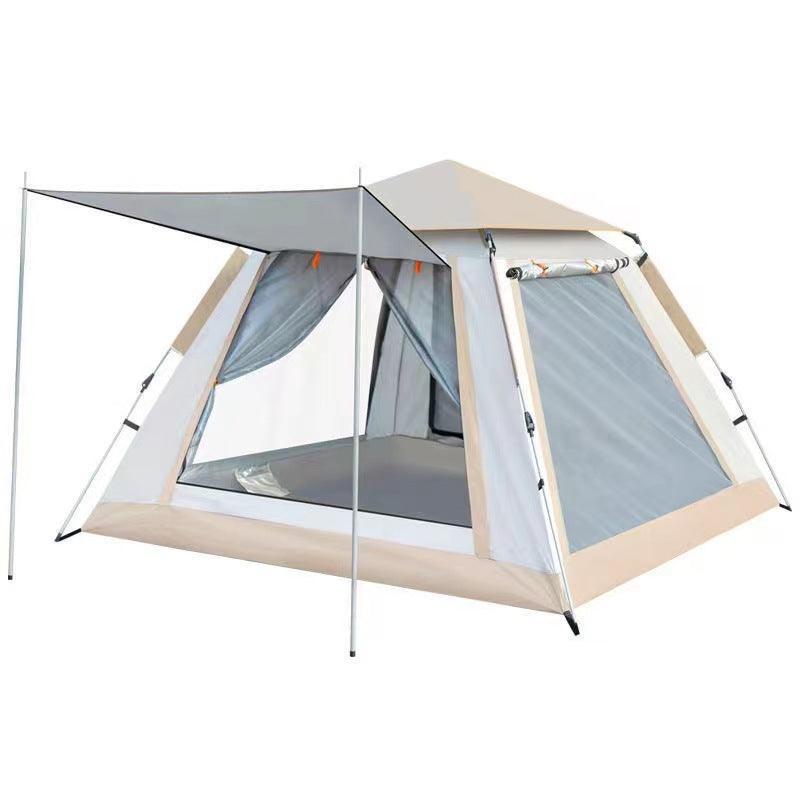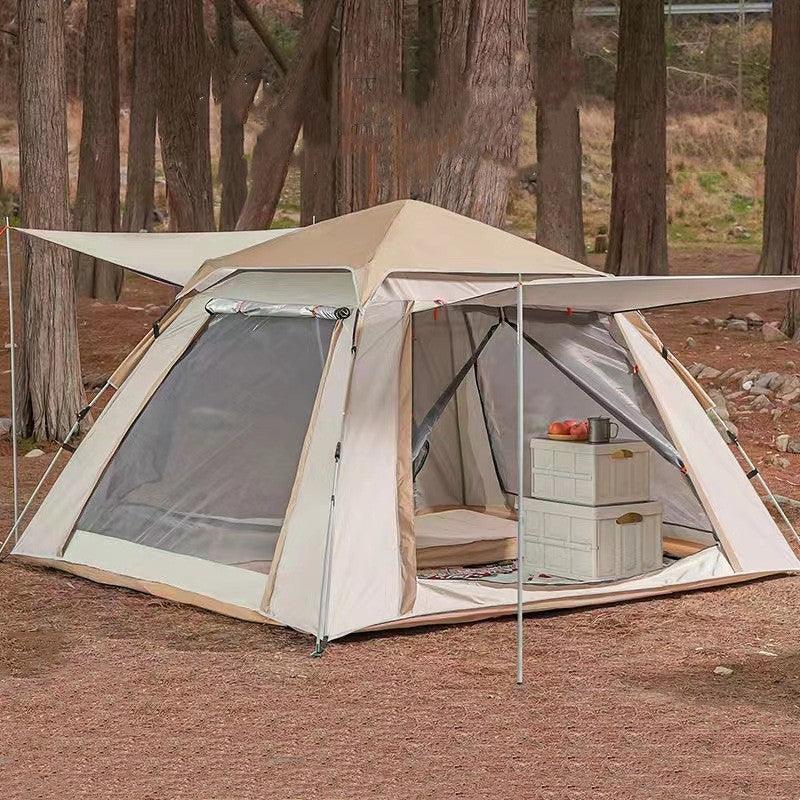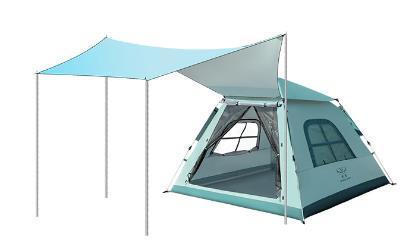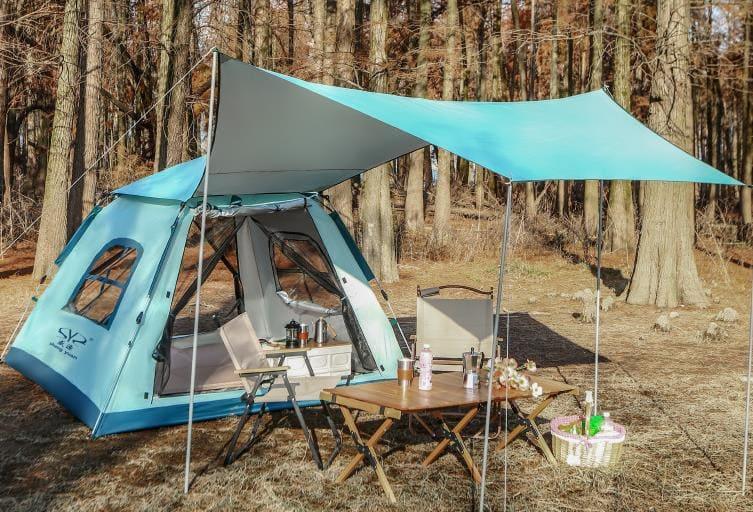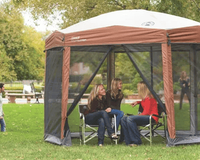Are you looking for the perfect tent to withstand the elements and ensure your outdoor getaway is relaxing and comfortable? Then it’s important to understand which material will best suit your needs. From waterproof fabrics to breathable sailcloth canvasses, there are countless types of tent materials these days. In this article, we take a look at some of the most popular tent fabric choices available on the market today and discuss their advantages and disadvantages. We'll also provide buying tips so that when it comes time for you to purchase your own tent, you're sure about what type of material is right for you!

What Are The General Fabrics Used For Tents?
What the tent is made of determines your camping experience. The general tent material should provide enough insulation to keep the camper warm and dry in inclement weather while also blocking out wind and other external elements. And the material of the tent should also ensure the comfort of people inside, which requires that it should also have good air permeability. Sadly no single material is perfect, so let’s take a look at four of the best camping fabrics currently on the market in next section. According to our detailed introduction, compare and find the tent that best suits your needs!
How To Choose The Best Tent Fabric For You?
The choice of breathability and waterproofness is in conflict, because the fabric is woven dense enough to be waterproof, but then the tent will be stuffy inside. Therefore, considering which function you need more is the key to purchasing. Next, let us continue to learn the advantages and disadvantages of the four most popular tent fabrics in the UK to help you make a great choice.
Polyester Tents

A popular choice is polyester, and for good reason. With its versatility, polyester ensures that campers don't have to worry about weather changes and sudden rain showers, but they do come with some disadvantages. Here are its pros and cons:
Pros
- Lightweight and Portable - Its light weight is also convenient for camping and hiking trips.
- Great UV Resistant - the polyester tent material resists UV rays, making it less likely to deteriorate from sun exposure.
- Excellent Waterproofness - it is the best waterproof tent material, which will keep you safe and secure in the tent despite heavy rains without leaks.
Cons
- Lack of Breathability - Polyester doesn't allow air to circulate through the material, which means that condensation can build up inside the tent, making it feel damp and uncomfortable.
- Undurable - It may be prone to tearing, especially when pitched in a windy location.
Nylon Tents

Nylon tent material has become the first choice for outdoor enthusiasts looking for a lightweight, durable tent, but some people think it is unbreathable:
Pros
- Tear Resistance - Known for its strength and tear-resistant properties, nylon is an excellent choice for those looking for a reliable tent that can withstand the elements and regular wear and tear.
- Easy Setting Up - Nylon tents are also easy to set up and take down, further adding to their convenience.
- Quick Drying - the nylon tent material is quick-drying, meaning it packs away easily without moisture absorption leading to mold or mildew.
- Cost-effective - nylon tents are often more affordable than other materials like canvas or polyester.
Cons
- Unbreathable - nylon tent material is not very breathable, which can lead to condensation and sweating if you are camping in a humid or warm climate
- Poor Flame Retardancy - Nylon tents are not as flame retardant as other materials, which can be a serious safety hazard in certain situations.
Canvas Tents

Canvas tents are a smart choice for anyone looking for a reliable, comfortable, and stylish outdoor shelter, but they may be barely weather-resistant:
Pros
- Durable - canvas is an incredibly durable material that can stand up to even the harshest weather conditions.
- Excellent Breathability - canvas tents have excellent breathability, which helps to prevent the buildup of condensation inside the tent. This can reduce your risk of getting sick and helps to keep the environment inside the tent fresh and comfortable.
- Easy setting up - a canvas tent is also a breeze, making it ideal for those who want to spend more time enjoying nature than pitching a tent.
- Excellent Insulation Properties - canvas tents have excellent insulation properties, which means that they can help you stay warm in cold weather and cool in hot weather.
Cons
- Barely Weather-Resistant - due to the breathable material, they are not as weather-resistant as other materials, meaning that heavy winds and rain can cause leaks and damage.
- Heavy Weight - they are much heavier than their modern counterparts, making them a burden to carry on any camping trip.
Polycotton Tents

For those looking for a comfortable and durable camping experience, poly cotton tents are the perfect solution, but they may be expensive:
Pros
- Breathability and Waterproofness - Made from a cotton and polyester blend, these tents offer the best of both worlds. Cotton provides breathability and a natural feel, while polyester adds strength and water resistance.
- Adapt to the climate - Another benefit of polycotton tents is that they're better equipped to deal with temperature changes. They tend to stay cooler during hot days and slightly warmer on chilly nights, helping you sleep more soundly.
- Sturdy - these tents are very sturdy that can handle a variety of outdoor environments, from windy beaches to wooded forests.
Cons
- Prone to Mildew - because Polycotton is a natural material, it is susceptible to mold and mildew growth if not properly aired out and dried after use.
- Expensive - polycotton tents are more expensive and require more maintenance, which can be a deterrent for those on a tight budget.
Conclusion
So, in conclusion, there is no one best material for tents. It all depends on the focus of one’s camping trip. If someone values longevity and durability, they may prefer canvas or polyester tents. Conversely, if someone wants lighter, more portable tent materials then nylon and polycotton may fit their needs better. Nylon and polycotton also offer greater resistance to water and exposure to the elements compared to canvas or polyester. In either case, it's important to research the pros and cons of each option before making a purchase decision, as this will allow you to make an informed decision that best fits your individual needs. With these tips in mind, hopefully you can now make an educated decision about what type of material works best for your next camping adventure.
[ddshopfaq-59091]

